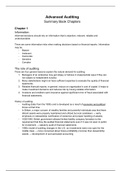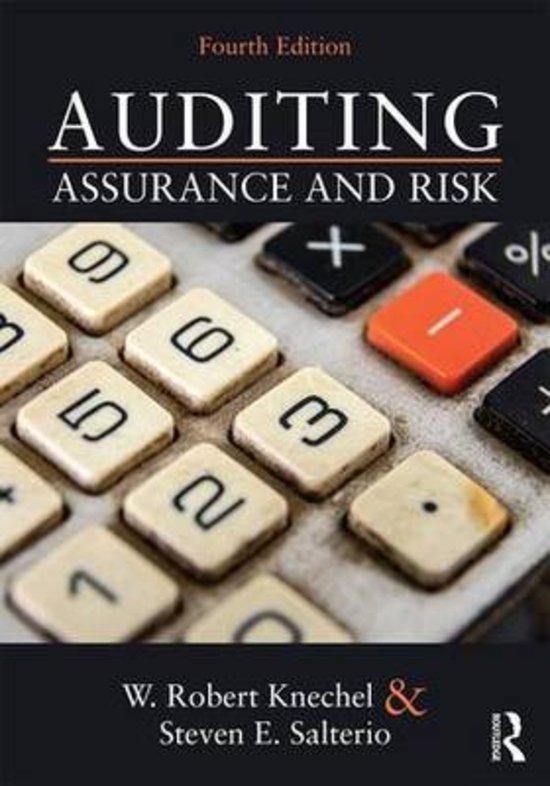Samenvatting
Advanced Auditing Book Summary
This document is a summary of the book 'Audit, Assurance and Risk' by Knechel and Salterio, used in the course 'Advanced Auditing' in the Master Accountancy, Tilburg University. The document is 115 pages long, and covers all the chapters required for the course. It also contains examples which you ...
[Meer zien]





